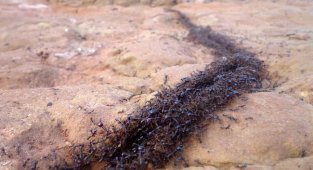In some cases, parasites not only do not harm, but also improve the lives of their hosts. Sometimes they even save them from death! 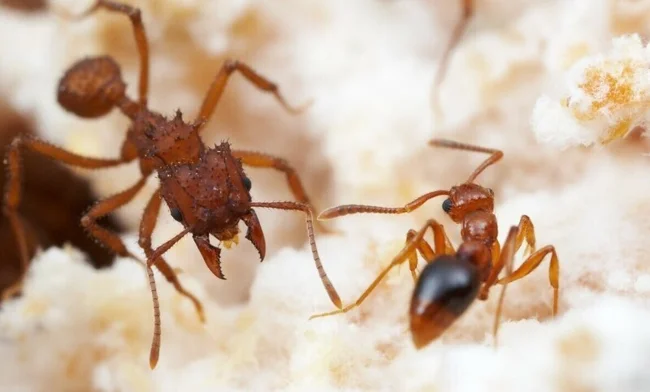
The ant on the right is our parasitic client.
Contrary to popular belief, parasites do not really want their hosts to die. Moreover, it is beneficial for them that the owner lives as long and as well as possible, because the condition of the parasite itself depends on him. Therefore, in a number of cases, parasites not only do not harm, but also improve the lives of those whom they eat. Or even save them from death!
One example of “good” parasites is the South American ants Megalomyrmex symmetochus. These are small insects that build anthills inside other anthills. In particular, in the nests of leaf-cutter ants. They carry out moderately subversive activities there: they eat eggs and pupae. Naturally, this is not good for the anthill.
But when nomadic ants raid leaf cutters, only Megalomyrmex can save them from death. Nomads are bigger, meaner and better armed. They make short work of the armed forces of leaf cutters. 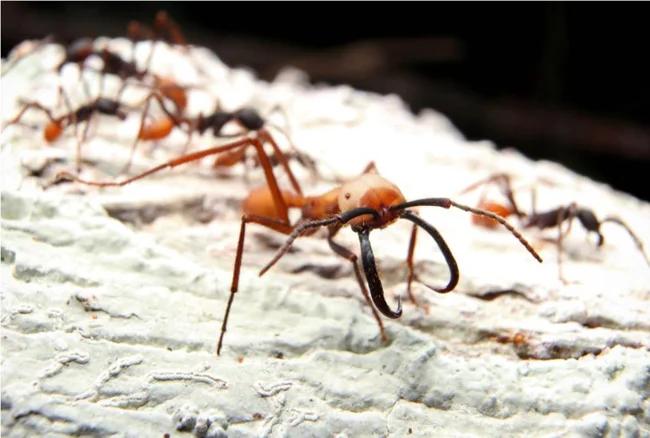
To give you an idea of how bad everything is: here is a photo of a nomad ant. No, these are not paws, these are his jaws.
Small megalomyrmex have the ability to hide in narrow passages where raiders cannot reach. But instead, they engage in battle and fight off the attack along with their host ants. Of course, purely physically they are even weaker than even the owners. But each megalomyrmex is armed with a stinger containing toxic alkaloids. One blow is enough to kill the enemy. 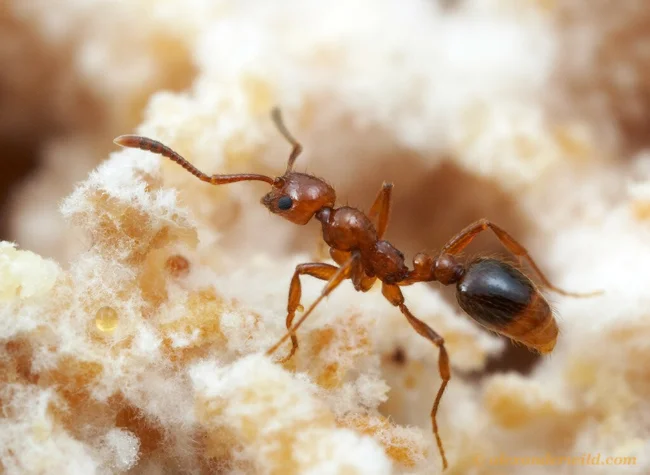
Only I have the right to eat these ants!
But that’s something else! Parasites are completely fighting with each other for ecological niches inside you! Parasitologists from the University of California examined more than 3,000 Tsimane Indians and found that single-celled Giardia and roundworms cannot tolerate each other! Both types of parasites live in the intestines and feed on semi-digested food, for which they are forced to compete. 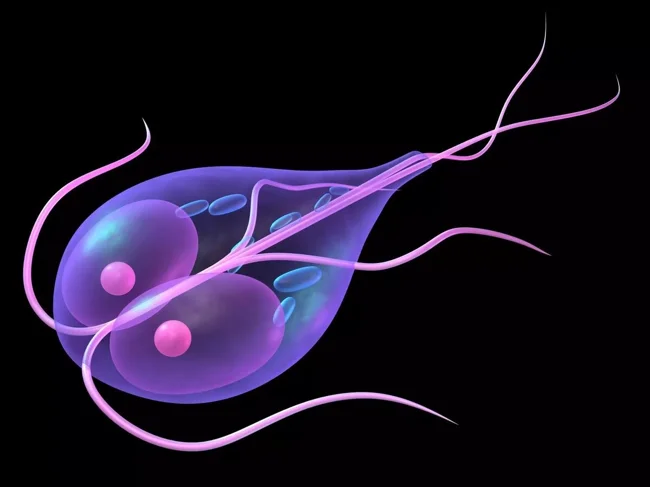
Giardia has 2 nuclei, 4 flagella and a double set of all organelles. And it looks as if the 2 cells were not completely separated.
The mechanism of parasitic wars is still not clear, but it is reliably known that infection with Giardia reduces the chance of intestinal worms by 70%. Roundworms cope a little worse. They reduce the chance of picking up competitors by 60%. But the most interesting thing happens when both types of pests inhabit one organism. The constant struggle for food leads to the fact that their populations are greatly reduced, and the condition of the owner improves! 
But pinworms, on the contrary, increase the chances of successful infection with roundworms. Worms fight for each other!
Helminths provide benefits in even stranger ways. To protect themselves from the body, they secrete immunosuppressants - special substances that suppress the activity of immune cells. On the one hand, this leads to an increased chance of getting sick. 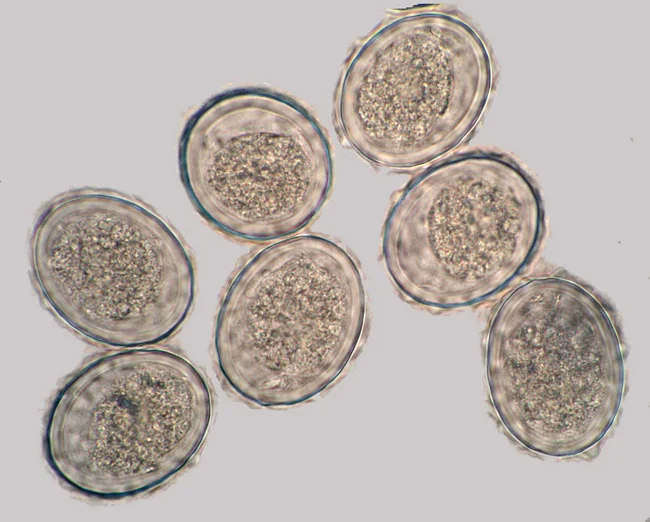
If you see such balls in food, do not eat this food under any circumstances. And, of course, you won’t be able to see them. They are about 0.05 mm in size!
On the other hand, immunosuppressants help relieve allergy symptoms, suppress some types of asthma and reduce the risk of developing autoimmune diseases - diseases in which the immune system attacks its owner. Here is the answer to the question why our grandparents did not suffer from allergies and other “newfangled” ailments!
0 comments
